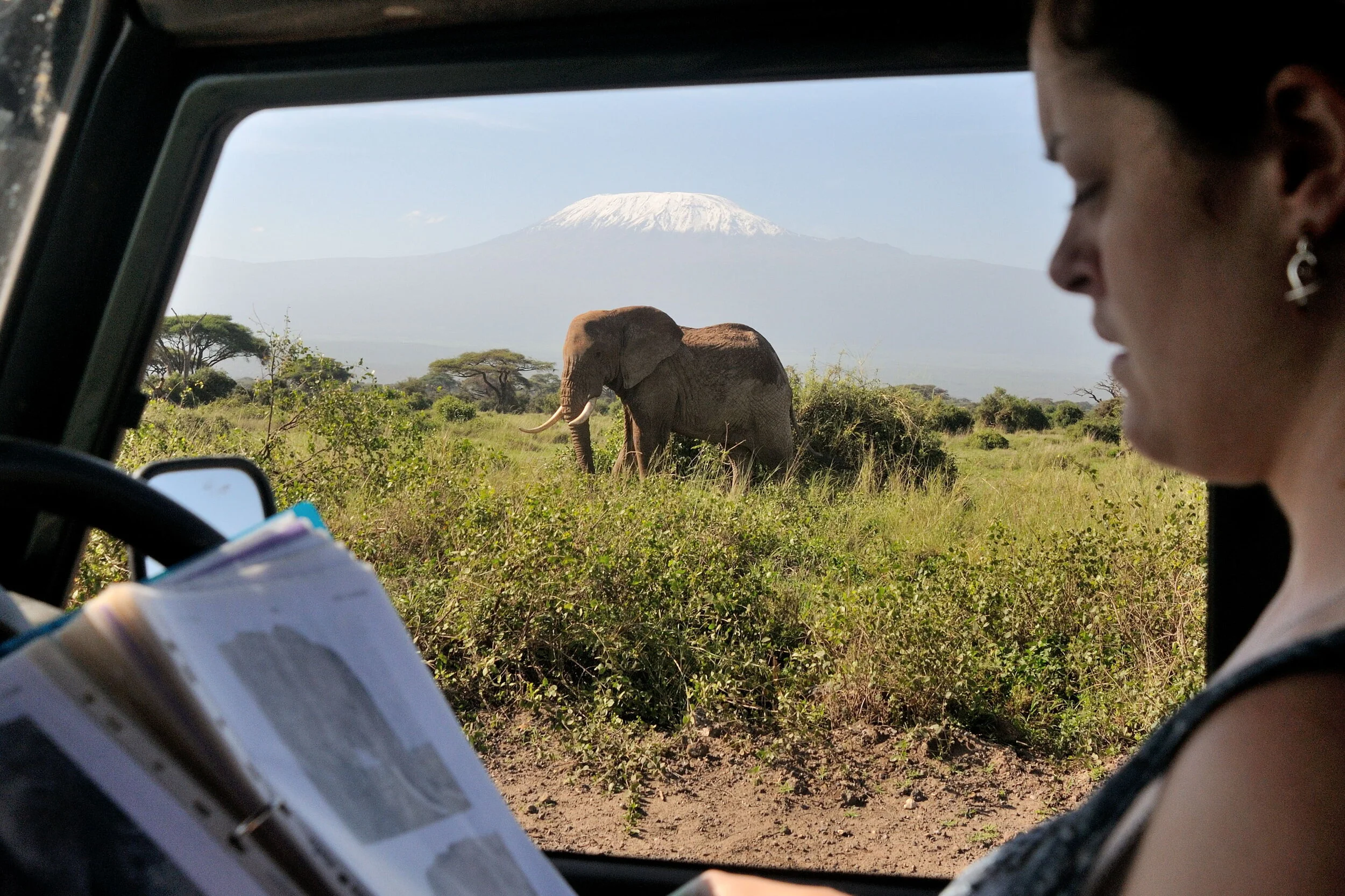China bans ivory, offering new hope for elephants
By Erica Cirino, Safina Center Launchpad Fellow
Elephants at a watering hole in Kenya. Photo: Carl Safina
Every fifteen minutes an elephant is murdered so that someone somewhere can buy an ivory bracelet, carving, or some trinket that humans and elephants both could live without.
Last fall the world’s nations met in Johannesburg to decide on trade policies for endangered wild animals and plants. One debate topic loomed particularly large: African elephants.
Many nations favored an outright ban on trading ivory, including 29 nations in Africa, as well as China. But after days of intense arguing—as we’ve written about previously, the world’s nations failed to agree on a simple ban.
China’s support was particularly noteworthy. After a successful global ban in 1990 caused ivory prices to collapse and elephants to begin recovering, China was allowed in 2008 to resume ivory imports. Almost immediately China’s demand for ivory ignited the current poaching crisis.
On December 30, 2016, China made a major announcement: it will ban essentially all ivory sales. If successfully enforced—China has thriving black markets—demand for ivory could plummet and elephant killing could drop enough to allow beleaguered elephant populations to begin recovering. China’s announcement follows an announced temporary ban last spring, and the United States’ enactment of a similar near-complete ivory ban last summer.
The U.S. State Department welcomed China’s announcement, saying, “It sets an ambitious, but achievable, timetable to enact a near-total ban on domestic commercial sales of ivory by December 31, 2017.” The United States and China have worked closely on structuring their respective bans to help close two of the world’s largest markets for ivory sales.
China’s ban would take place in steps, according to China’s State Council. It will shut down its 34 ivory processing centers and 143 approved ivory trading centers by March 2017. China’s Ministry of Culture will help verify legal ivory in museums and also help workers involved in the ivory industry—such as sellers and master carvers—find alternative jobs. People who already own legal ivory products will be permitted to keep them or give them away as gifts or, with state approval, sell then at auctions.
Elephant conservationist and resident scientist at the Amboseli Elephant Research Project Dr. Vicki Fishlock, says China’s ban, if enforced, could be effective in stopping the flow of ivory.
“Banning all trade will make all ivory illegal, sending a strong message to consumers and affecting the price,” says Fishlock. “The 1989 [world-wide] ban caused ivory prices to plummet, collapsing the illegal market and removing the profit in trafficking or procuring ivory and in killing elephants.”
Vicki Fishlock at work in Kenya. Photo: Carl Safina
China is the world’s biggest consumer of ivory, with an estimated 70 percent of all ivory bought in that country. Yet China isn’t the only place where ivory is bought, sold and processed. Fishlock hopes China’s ban might prompt other ivory consuming countries such as Thailand and Vietnam to enact similar ivory bans.
While countries around the world deliberate on ivory restrictions, in the meantime, elephants continue to be killed; their faces hacked up, their tusks whisked away and their bodies left to rot. A recent survey by the Great Elephant Census has found just 352,271 African elephants–representing 93 percent of Africa’s total elephant population–remain living in 18 African nations. That’s a 30 percent population loss in just three years.
The loss of elephants, an acute tragedy on its own, can be catastrophic for proper functioning of savanna ecosystems. Rhinos, whose horns are taken for ornaments and “medicine,” have also collapsed in many places.
“Elephants and rhinos don’t belong to poachers,” says Fishlock. “They don’t belong in display cabinets. They belong in their social groups, their families, which are inspiring and amazing and a key component of healthy ecosystems… on which we all depend.”
So, fingers crossed that China is serious, and will effectively enforce their announced ban. We are all counting on it.


